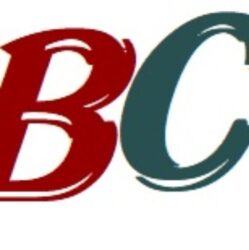Rudy Giuliani’s wide-ranging work for U.S. President Donald Trump could make it tougher for him to claim Ukraine-related documents demanded by Congress as part of its impeachment inquiry are confidential and protected under lawyer-client privilege, experts said.
The Democratic-led House Intelligence Committee issued a subpoena to Giuliani on Monday, setting an Oct. 15 deadline for him to turn over documents related to his efforts to work with Ukrainians to investigate Trump’s potential 2020 Democratic election rival Joe Biden.
The former New York mayor said on Monday the subpoena raised issues of “attorney client and other privileges.” [nL2N26L1BI]
The Committee warned that failure to comply could amount to obstruction or be used as an adverse inference against Trump and Giuliani.
Jon Sale, who is representing Giuliani, said he would be preparing a response to the subpoena and that it would be up to Trump and his office whether to assert such privileges.
Giuliani has emerged as a central figure in a scandal that has now engulfed Trump and left him facing an impeachment inquiry into whether he misused his office for his own political gains.
Giuliani told Reuters he met Ukrainian officials in Madrid, Paris and Warsaw this year as he pushed the Biden investigation.[nL2N26L02D]
His unconventional role will be central to any fight over his communications. Giuliani is not employed by the U.S. government, undermining the concept of executive privilege, which is intended to protect communications between the president and close advisers to ensure candid, private advice.
“There is no significant precedent or support generally for the idea that a person outside the government is protected by executive privilege in the way that White House staff would be,” Mark Rozell, the dean of George Mason University’s Schar School of Policy and Government.
Attorney-client privilege protects lawyers from testifying against clients, but is generally limited to confidential communications about legal advice, experts said.
Giuliani told Reuters that he did not view his work as a “political act,” an important distinction if a fight erupts over access to documents.
Political missions on a client’s behalf are fair game for disclosure, legal experts said
They said they knew of no court that had directly addressed attorney-client privilege in the context of an investigation involving a sitting president’s communications with a personal attorney.
During the Clinton administration, an appeals court ruled that the White House could not claim attorney-client privilege to avoid handing over documents to a grand jury.
But that case involved communications with White House counsel, or government lawyers, not a personal lawyer like Giuliani.
Even if Giuliani can make the case that his work for Trump amounted to legal advice normally protected from disclosure, not all his communications would be privileged.
Documents such as calendars, phone logs and communications with third parties will be difficult to protect from Congress, legal experts said.
Democrats could also argue that Giuliani cannot shield communications that were made in furtherance of a fraud or criminal conduct. Courts have long recognized that the attorney-client privilege does not apply to such communications.
Giuliani says that what he did was above board and that his efforts were aimed at rooting out corruption in Ukraine. Department of Justice officials concluded in September that Trump’s conduct on a call with Ukraine’s president that triggered the impeachment inquiry did not violate campaign finance law. [nL3N26G2QH]
Any fight over privilege could wind up in federal court, where a judge would need to determine whether disputed documents amounted to legal advice. The process could take weeks or months as any decision could be appealed to the U.S. Supreme Court, according to legal experts.
Giuliani’s other role, as defender of the president in the media, could also work against him, according to Michael Stern, who served as senior counsel to the U.S. House of Representatives from 1996 to 2004.
Democrats could claim he “waived” privilege by discussing his communications in a recent flurry of interviews including TV appearances on CNN and Fox News.
“When you go on TV all the time it is kind of hard to claim attorney-client privilege on things you’ve talked about,” Stern said.

